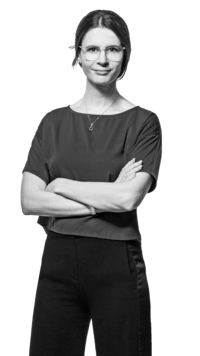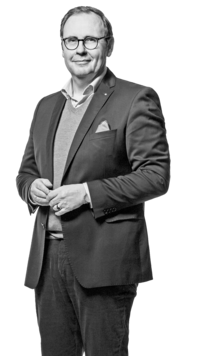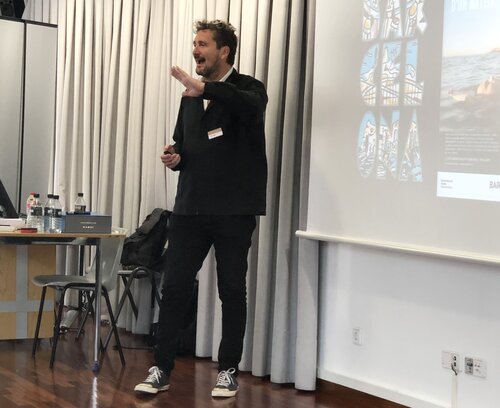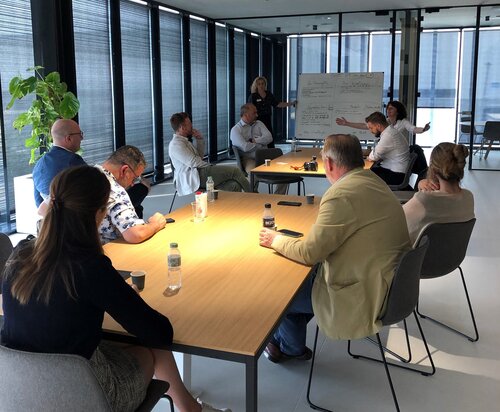The second station of our Re-Building Europe journey has taken place in Barcelona on the 7th and 8th of June regarding the topic of Science, data, people, Sustainable strategies for local climate change mitigation and adaptation in the urban context. Along with our host La Salle University and an exclusive group of 15 guests joined the vibrant discussions and workshops on the various topics.
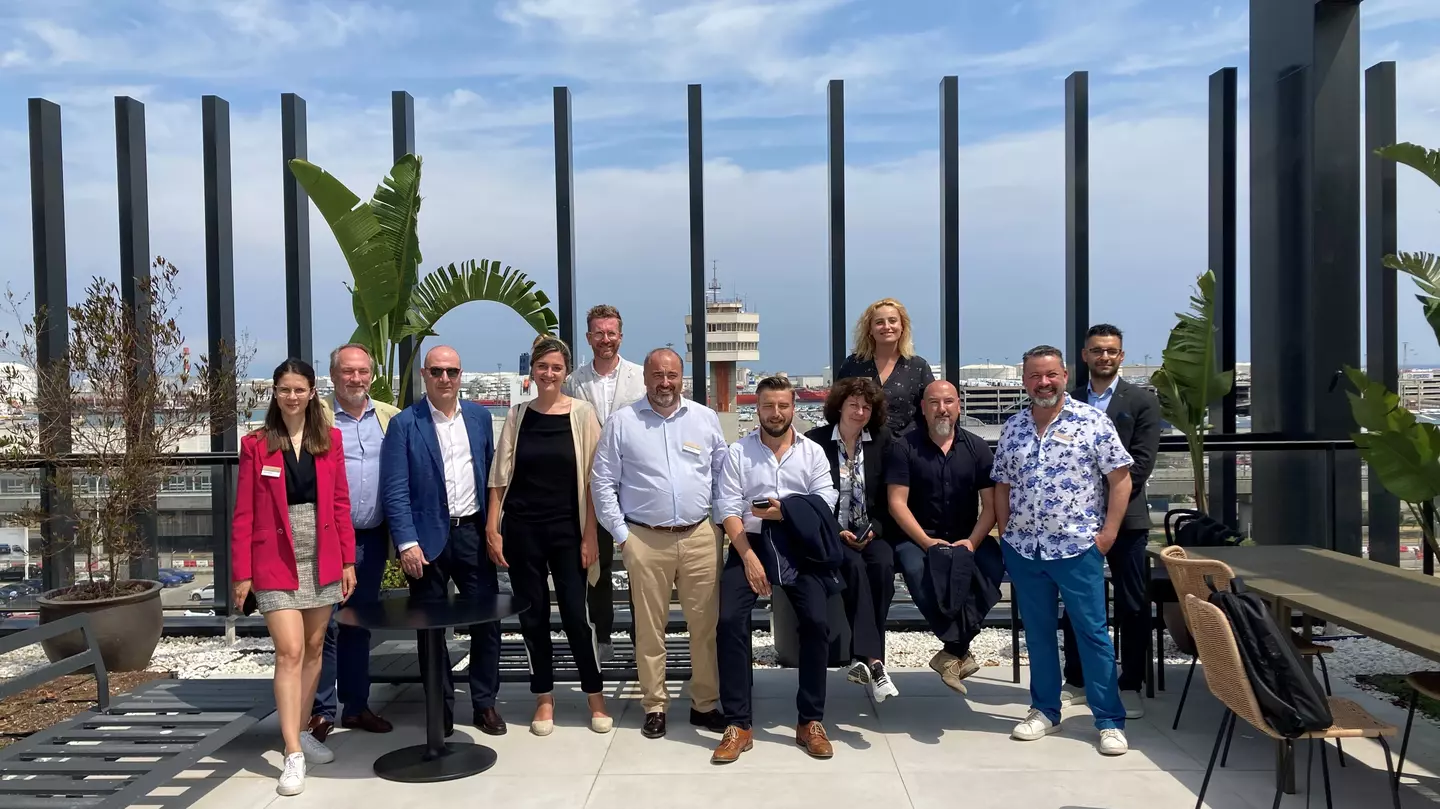
Limitation as a gift
Barcelona in its’ unique geographical situation has developed an outstanding district development that shows how industrial land can successfully transferred into an vibrant, hipster and talent oriented district.
We started on the 7th of June in the Edificio MediaTIC with an introduction to the area by Jaime Font Furest, Director International Architecture Programs School of Architecture at the La Salle University. The business model innovation developed by the city made the investment attractive as investors received additionally two more stories for buying a block in the industrial area. In return, they had to give back 30% of the property to the city which used it for educational purposes, public spaces and housing.
The introduction was followed by an tour through the district to experience the different blocks and feel the merge of new developments, culture and heritage.
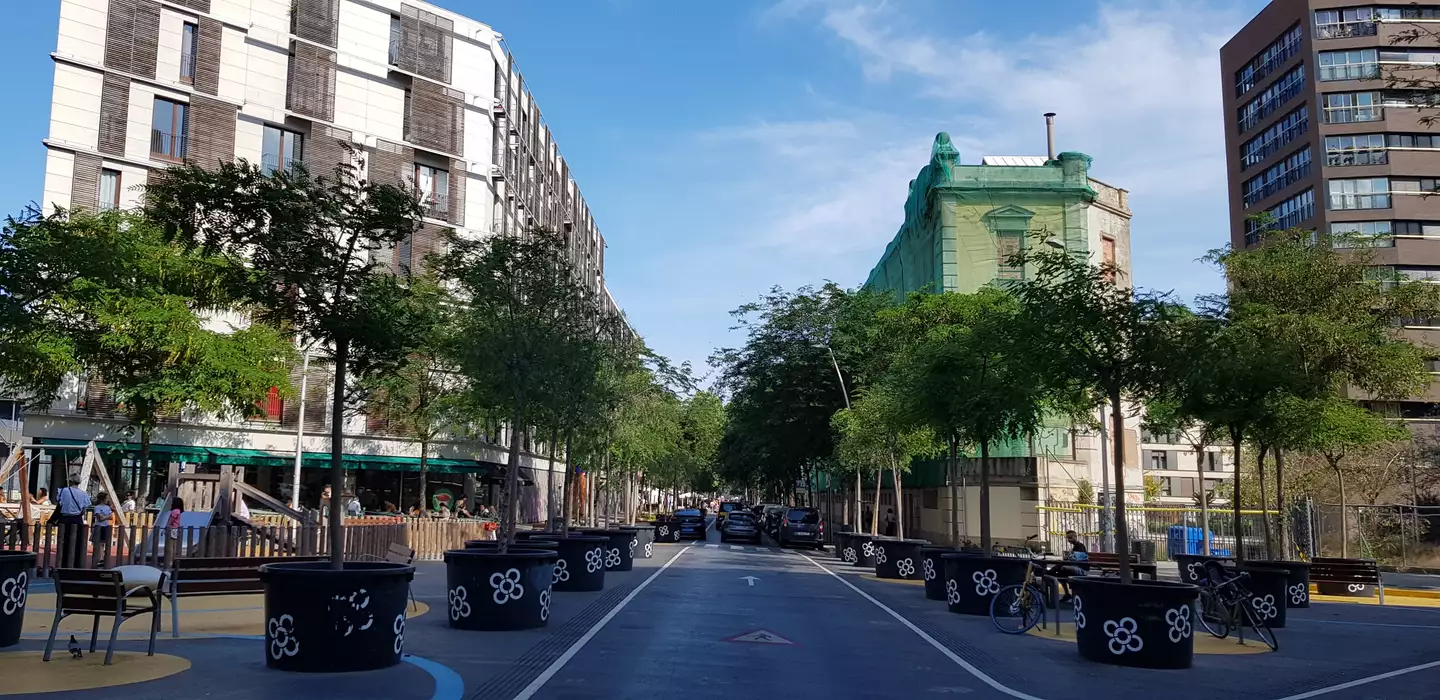
Main day
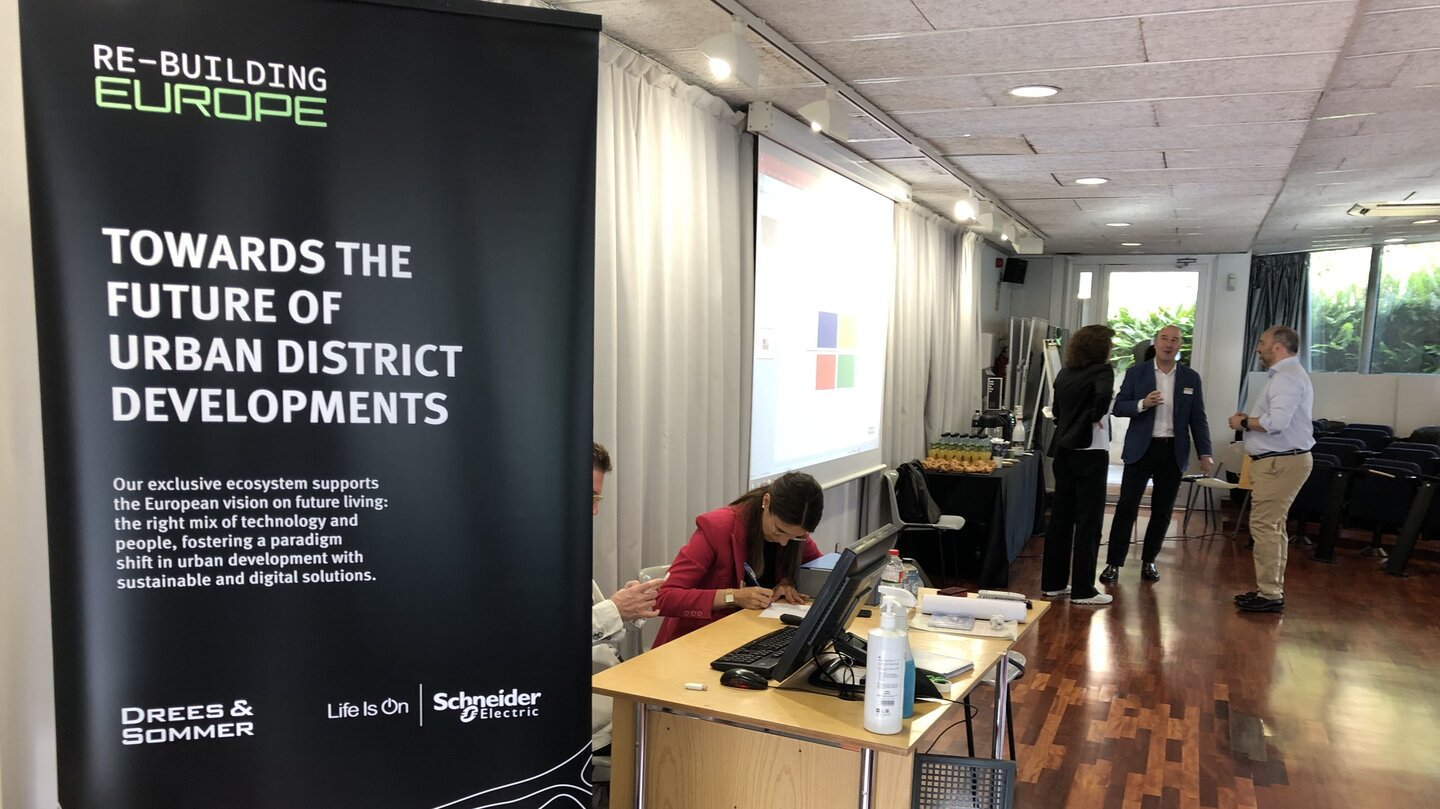
On the next day, the La Salle University opened its gates and welcomes our group to discuss the learning from the 22@ district on the second day. After a short introduction of the Re-Building Europe initiative to the participants, Prof. Furest presented two district use cases the university successfully collaborated with the economy.
Keynote: Prof. Jaime Font Furest
Director International Architecture Programs School of Architecture at the La Salle University
Prof. Jaime Font Furest, Director International Architecture Programs School of Architecture at the La Salle University welcomed us and presented two projects from his studies that show the transmition from the 22@ district to other developments. One of the examples was the project in Busan South Korea.
Project Busan in South Korea
The Busan project was a collaboration between two universities with the aim to include Housing into a new district on the reference of the 22@. The collaboration was difficult as south Korean students developed plans that clearly separated housing and industries, while the European student developed a story. This story was translated into the Masterplan including cultural power, leisure, legacy(heritage) and mixed-use building.
The results showed in a drastic way how cultural differences are most important for the success of a district. First, the district focused only on technology, internet and work offices for its’ citizen and the cultural aspect was completely missing. The “soul” of the district was absent and therefore not attractive. Second, the gathering options designed by the Spanish students were further not accepted by a culture coming from an hierarchical government.
Keynote: Josep Bohigas
Director of the Barcelona Regional Strategic Planning Agency
Josep Bohigas, Director of the Barcelona Regional Strategic Planning Agency joined us and shared in his keynote how the strategy of Barcelona Regional have to be aligned with developments for an overall success and benefit for the city and its people.
Barcelona is one of the most touristic cities and needs to develop in a different direction. The prioritize of the city changes as the habitants have to be considered before deciding toward tourism in order to bring back to the city to its’ people.
Barcelona regional in general follow different direction. Looking back and always including the Heritage of an district as well as looking forward to the next generations. This includes to transform the existing city into a sustainable city, which is not based on the debt of other generations.
In terms of policy making he drew the picture of an onion. The example of onion of rights:
- Right for health includes air quality, quality of noise, more green spaces etc.
- Right for housing as Barcelona is limited in space and is experiencing huge public housing issues
- Right for neighborhood to zoom out on a bigger scale
- Right for a city, with a different usage as of todays’
Workshop I
Christiane Gebhardt, Co-lead of the integrated urban solutions team at Drees & Sommer continued with the first workshop focusing on the learnings & failures of the 22@ and gathered ideas for future developments.
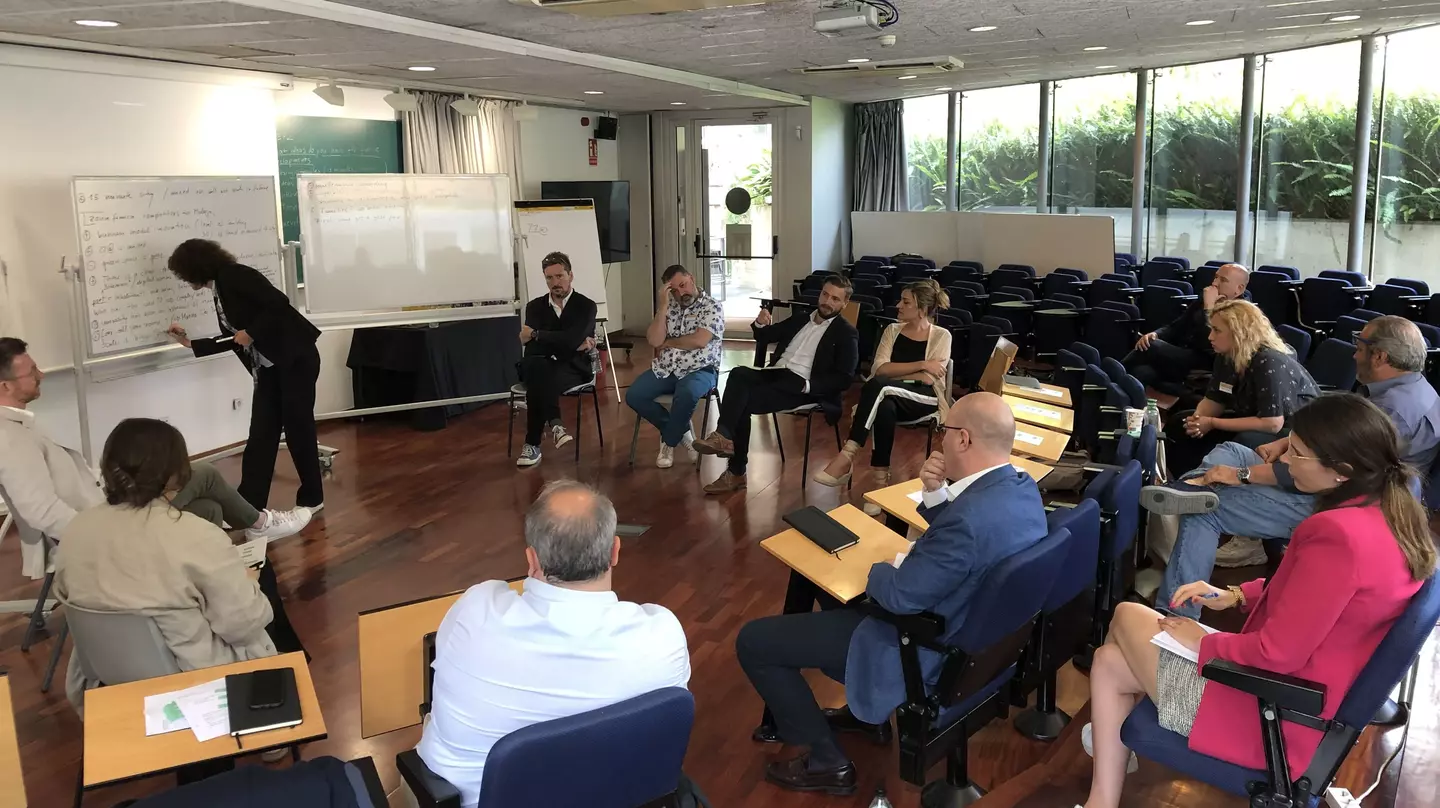
Site Tour DFactory
In the afternoon the DFactory opened its gates and we were able to visit a building designed as the lighthouse of the new district Zona Franca. Promoted and managed by the Consorci de la Zona Franca de Barcelona, it is born with the aim of, which seeks to establish Barcelona as the center of 4.0 innovation in Southern Europe. Also, it promotes the creation of an ecosystem to attract talent, technology and investment in a unique space that gather the most innovative companies and the most forward-looking technological projects.
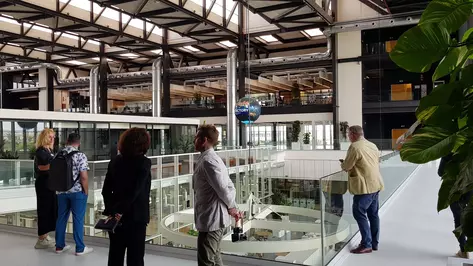
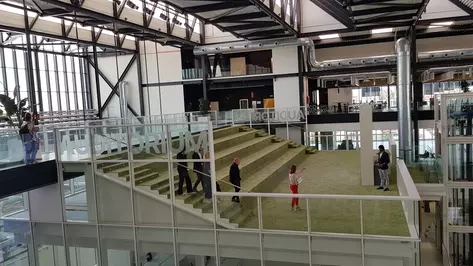
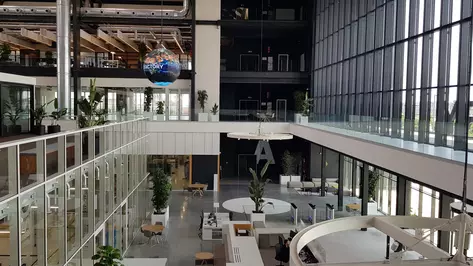
Workshop II
Mrs. Gebhardt led us through the second part of the workshop and having experienced the area gave the perfect setting to create a SWOT Analysis, focusing on key challenges and risks.
We are now looking forward to our upcoming workshops in Basel, Berlin, Oslo and Milan driven by Canton Basel City, EUREF campus, LaSalle University, SwissLife Asset Managers and LAND.
If you are interested, get in touch!
GET In TOUCH
